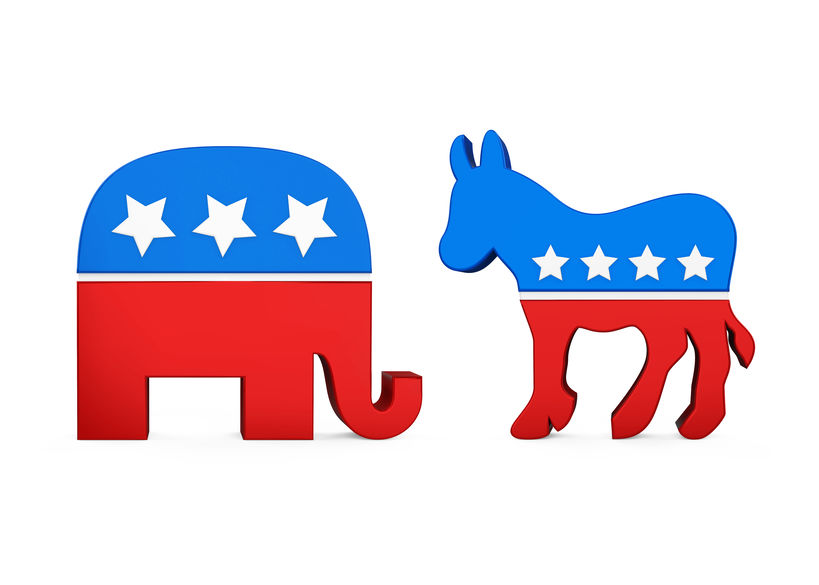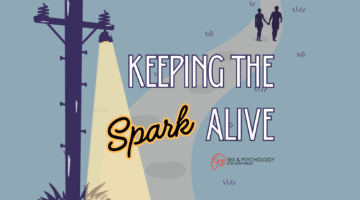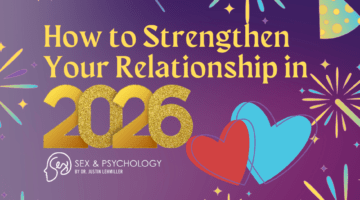How Your Political Views Shape Who You’re Attracted To
July 19, 2019 by Justin Lehmiller
Generally speaking, people tend to select romantic partners who hold similar political views. For example, consider a recent study in which researchers looked at party registration patterns of heterosexual married couples in 30 U.S. states [1]. What they found was that male and female partners were registered with the same party in 70 percent of households; just 30 percent involved a mismatch of some sort. Of those mismatches, only about one-third involved a Democrat partnered with a Republican—the rest involved people with partisan affiliations partnering with independents.
The fact that only about 1 in 10 current married couples features a Democrat-Republican pair suggests that people with extreme political differences either don’t get together very often or, when they do, their relationships don’t last very long . So why is that? Social psychology can help us to understand why people tend to start relationships with those who are politically like-minded.
For one thing, there’s a long-standing body of research dating back to the 1960s showing that people tend to be attracted to those who are similar to them—a phenomenon social scientists refer to as assortative mating [2]. We don’t just go for people who hold similar attitudes, but also people who enjoy the same activities, who come from similar backgrounds, and who are at about the same level of physical attractiveness as us. Perhaps you’ve heard the old saying “birds of a feather flock together?” It turns out there’s quite a bit of truth to this idea.
We’re drawn to similarity for several reasons, but perhaps most important is the fact that being with someone who views the world the same way that you do is validating—it reinforces the sense that your views are correct. That’s something that tends to make us feel pretty good. Having a partner who is similar to you also offers some degree of security and predictability because you know how they’re likely to behave in the future.
It’s not just that we’re attracted to similarity, though. At the same time, we tend to be repulsed by dissimilarity. In other words, finding out that someone holds different views can be a major turn-off. In fact, some research suggests that the negative effect of dissimilarity on attraction is even bigger than the positive effect of similarity [3]. This makes sense in light of something social psychologists call the negativity bias, or the idea that—all else equal—negative information dominates our attention more than positive information. This is thought to be an adaptive cognitive bias in the sense that devoting more attention to the negative may help us to avoid people and situations that are potentially bad for us. The downside, though, is that this negativity bias makes it such that a poor first impression is extremely difficult to correct.
Another principle of social psychology that can help us to understand why couples with extremely different political backgrounds are few and far between is our tendency to demonstrate ingroup bias. What this means is that we show favoritism toward those who belong to the same groups that we do, while those who belong to other groups are viewed and treated negatively. We do this because we are motivated to achieve something called positive distinctiveness. Basically, we want to be able to view our groups as better than other groups because feeling good about the groups we belong to makes us feel good about ourselves by extension.
This ingroup bias effect has been demonstrated in the case of attraction to people from different political parties. In a study that took place in 2012, researchers asked Americans to rate the physical attractiveness of people who were labeled as either Romney or Obama supporters during that year’s Presidential election [4]. What they found was that those who identified as Republicans rated photos of Obama supporters as less attractive across the board. Likewise, those who identified as Democrats rated Romney supporters as less attractive.
Interestingly, though, while men did not give an attractiveness boost to people of the same political party, women did. We don’t know what accounts for this gender difference and we need to see if this effect holds up in future studies; however, the researchers behind this study suggest the intriguing possibility that women might be “more discriminating than men when it comes to political compatibility.” They argue that this would make sense in light of evolutionary theory, which claims that women are more selective and discriminating than men when it comes to relationships because reproduction is more costly for women.
While all of this helps us to understand why people from different political backgrounds make unlikely bedfellows, a surprising number of Democrats and Republicans do indeed get together. So why is that? How do they get past the repulsion and ingroup bias that so often turn political differences into relationship dealbreakers? Again, social psychology offers valuable insight.
Though difficult, we are able to form friendships and romances with people who belong to competing groups—including people from rival political groups. The contact hypothesis can help us to understanding when and why this is likely to occur.
The contact hypothesis specifies that when people from different groups interact, the boundaries between them can be broken down and positive feelings can emerge if—and only if—certain conditions are met. For example, relationships are more likely to develop when people find themselves in cooperative situations working toward common goals. What this means is that if, say, a Democrat and Republican were out on their first date and they decided to play a competitive game against one another, odds are that it’s not going to turn out well. However, if they were instead working as a team toward the same ends, they’d stand a better chance of putting their differences aside.
In addition to cooperation and common goals, what your friends and family think about you dating someone from another party matters, too. For instance, if you know you’d never hear the end of it from your best friend or a parent if you started dating a Republican, you might start disengaging when a date reveals conservative beliefs. By contrast, if your best friend and parents don’t hold rigid political views, you might be more inclined to go on a second date with someone of a different political background.
In short, if the circumstances of the meeting are just right, people can and will consider dating (and sometimes even marrying) across party lines.
Want to learn more about Sex and Psychology ? Click here for previous articles or follow the blog on Facebook (facebook.com/psychologyofsex), Twitter (@JustinLehmiller), or Reddit (reddit.com/r/psychologyofsex) to receive updates. You can also follow Dr. Lehmiller on YouTube and Instagram.
[1] Hersh, E., & Ghitza, Y. (2018). Mixed partisan households and electoral participation in the United States. PloS one, 13(10), e0203997.
[2] Luo, S., & Klohnen, E. C. (2005). Assortative mating and marital quality in newlyweds: a couple-centered approach. Journal of Personality and Social Psychology, 88(2), 304.
[3] Singh, R., & Ho, S. Y. (2000). Attitudes and attraction: A new test of the attraction, repulsion and similarity‐dissimilarity asymmetry hypotheses. British Journal of Social Psychology, 39(2), 197-211.
[4] Nicholson, S. P., Coe, C. M., Emory, J., & Song, A. V. (2016). The politics of beauty: The effects of partisan bias on physical attractiveness. Political Behavior, 38(4), 883-898.
Image Source: 123RF/nerthuz
You Might Also Like:

Dr. Justin Lehmiller
Founder & Owner of Sex and PsychologyDr. Justin Lehmiller is a social psychologist and Research Fellow at The Kinsey Institute. He runs the Sex and Psychology blog and podcast and is author of the popular book Tell Me What You Want. Dr. Lehmiller is an award-winning educator, and a prolific researcher who has published more than 50 academic works.
Read full bio >


